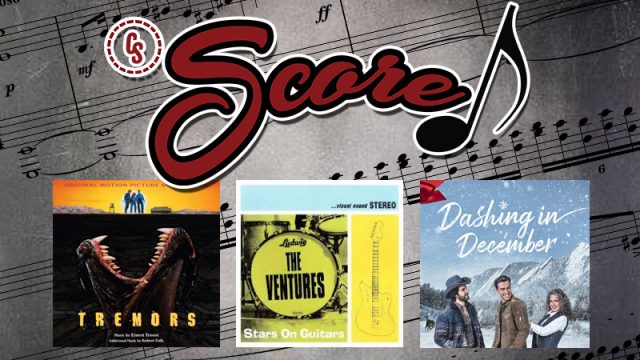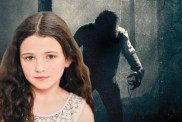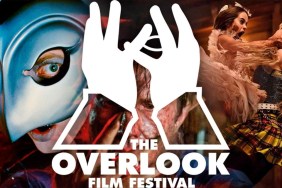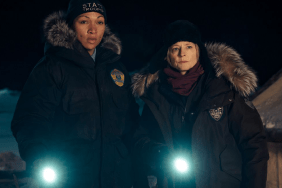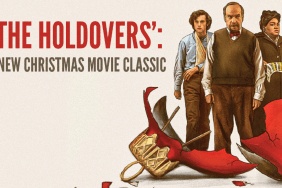CS Score Interviews Director Staci Layne Wilson & Composer Chad Rehmann
Welcome back film score lovers! This week we’re looking at La La Land’s release of the Tremors motion picture soundtrack by Ernest Troost with additional music by Robert Folk. We also sat down and spoke with composer Chad Rehmann, who scored the upcoming film Dashing in December; and Staci Layne Wilson, director of the amazing documentary The Ventures: Stars On Guitars.
Lets do this thing!
NEWS
Here’s what’s happening in the soundtrack world!
JINGLE JANGLE
By John Debney
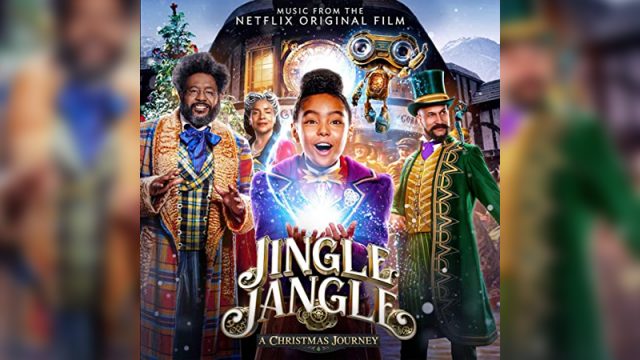
Check out this track from the Netflix Original Film Jingle Jangle, titled “By the Fire with Grandma / Jangle’s and Things.” Composed by John Debney (Elf, Iron Man), the joyously uplifting orchestral score alongside the sparkling original songs elevate it as a timeless holiday classic.
Purchase Jingle Jangle: A Christmas Journey (Music From The Netflix Original Film) here!
Says Debney, “The score for Jingle Jangle is at once classic yet utterly soulful. David’s vision was to create a timeless score full of life with soaring melodies and an adventurous spirit. Working together closely, David and I strove to plumb the depths of our hearts and souls. Along with the brilliantly crafted songs, we hope the listener leaves with a head full of hummable melodies.”
DASHING IN DECEMBER
By Chad Rehmann

Christmas is just around the corner, which means we’re about to receive an abundance of holiday-themed films, including Paramount Network’s Dashing in December. And just to show we’re not a bunch of scrooges, here are a few tracks from Chad Rehmann’s lovely music score:
The film is written and directed by Jake Helgren and stars Juan Pablo Di Pace, Peter Porte, Caroline Harris and Andie MacDowell. Dashing in December will premiere on December 13, 2020 on the Paramount Network with simulcasts on Logo, Pop and TV Land.
WILD MOUNTAIN THYME
By Amelia Warner
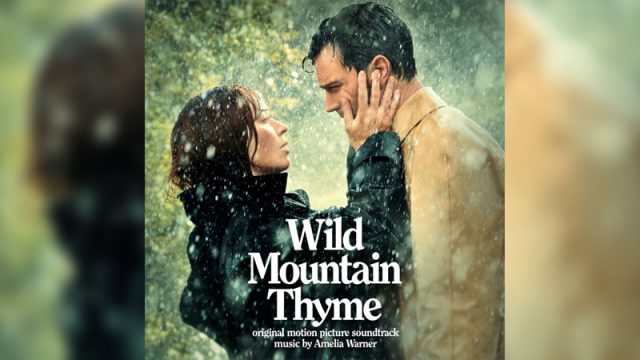
We wanted to throw this one out there to spread the word: Wild Mountain Thyme ranks among the best scores of the year. Filled with achingly beautiful themes, Wild Mountain Thyme original motion picture soundtrack features music by Neo-classical composer Amelia Warner (Mary Shelley), a new song by Sinead O’Connor, performances by actors Emily Blunt and Jamie Dornan, and a track by Brian Byrne.
Purchase Wild Mountain Thyme (Original Motion Picture Soundtrack) here!
We are so excited to present the deluxe 30th Anniversary release of Tim Burton’s EDWARD SCISSORHANDS Original Motion Picture Music vinyl by Danny Elfman! On Sale Now! https://t.co/C3WFvNt748 pic.twitter.com/4w0a8kVtu0
— Waxwork Records (@waxworkrecords) December 11, 2020
Back in stock ALIEN (2 CD) https://t.co/EOepbhcw3s
— Intrada (@IntradaCDs) December 3, 2020
Back in stock BACK TO THE FUTURE Alan Silvestri score CD https://t.co/GGYRmgvm4t
— Intrada (@IntradaCDs) December 3, 2020
Back in stock – BACK TO THE FUTURE PART II (2CD) https://t.co/3NXwSclj2q
— Intrada (@IntradaCDs) December 2, 2020
TREMORS
BY Ernest Troost and Robert Folk
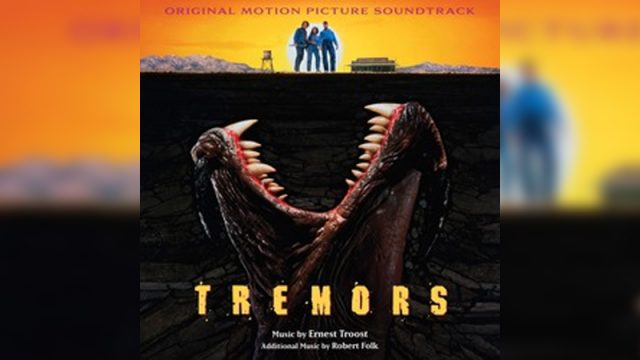
Say what you will about Tremors. It’s a franchise with no quit, having spawned seven films, a short-lived television series and enough revenue to keep Michael Gross happy for the rest of his days. The original Tremors was discarded as a silly B-movie by Universal and released in January of 1990 to surprisingly solid critical reviews and a modest box office take. Audiences discovered the film on home video and turned the Ron Underwood-directed horror comedy into a cult classic.
The soundtrack to Tremors was a unique experience for all involved. Apparently, Underwood commissioned Ernest Troost to write the score resulting in a low-key country sound produced with modest elements. After the sound mixing process, Underwood decided the score needed a little more muscle and brought in Robert Folk to provide stronger action cues. When mixed, the two scores actually work quite well together with Troost supplying the twangy sound heard during the film’s quieter moments, including the pole-vaulting sequence, and Folk adding suspense during the numerous action scenes.
Interestingly, Folk, who has 88 scoring credits to his name, including comedies such as Bachelor Part, Ace Venture: When Nature Calls and Loaded Weapon 1, went uncredited on the picture, despite writing nearly 20 minutes of score.
Now, with La La Land’s Tremors original motion picture soundtrack, both artists get their time to shine. Presented over 2 CDs, Tremors provides Troost’s original score in its entirety, allowing listeners to hear alternate takes for some of the more intense moments of the film. Indeed, despite some clever compositions, it’s clear Underwood made the right call. Troost’s contributions work really well during the character-drive moments and lend the picture a fun, country vibe. While Folk’s work, presented on the second CD, lends the film a thrilling sense of adventure. It is fascinating to hear the two styles work in conjunction; and it should be said that neither contradicts the other particularly when mixed together in the film.
Really, the only difference in Troost’s music is its minimalistic nature. Even big action sequences lack much heft. Indeed, as stated, the score works well with the comedic elements and underscores the vast desert landscapes of Perfection quite well. The composer leans on creepy synthesizers for the action beats, which play well with Tremors’ B-movie style.
Folk, however, lends the film a sense of adventure. His pieces are relatively short – the longest cue runs 2:38 — but they are big, bombastic and, truthfully, the best part of the album.
At any rate, fans of Tremors will surely get a kick out of this release and appreciate the different elements needed to create this classic monster movie.
Purchase Tremors: Limited Edition soundtrack here: https://lalalandrecords.com/tremors-limited-edition/
INTERVIEW WITH STACI LAYNE WILSON
DIRECTOR OF THE VENTURES: STARS ON GUITARS
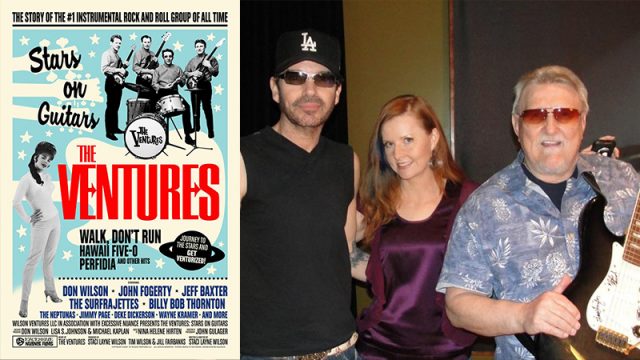
Staci Layne Wilson’s docudrama The Ventures: Stars On Guitars is a fascinating look at one of America’s most influential and popular bands that chronicle their rise to fame in 1960s; and where they are today.
Wilson has directed a number of feature films and TV shows, including Shevenge, Cabaret of the Dead, Ms. Vampy’s Love Bites, Be You … and, Be Fearless! as well as short films such as Psycho Therapy. She was gracious enough to speak with ComingSoon.net about Stars On Guitars; and shed a little more light on what it was like growing up with The Ventures.
Purchase The Ventures: Stars On Guitars here!
ComingSoon.net: What made you want to do a documentary on The Ventures at this point in your life?
Staci Layne Wilson: A few people have wanted to make documentaries about The Ventures over the years, but they were all talk. As the 60th anniversary of their breakout hit, “Walk, Don’t Run,” approached, my brother, Tim Wilson, suggested that we try to get something going ourselves. Since I had already directed a couple of narrative features, plus a few music videos, it seemed natural that I would take on the role of director.
CS: Your dad, Don Wilson, is one of the co-founders of The Ventures, so you obviously knew quite a bit going into the project, but were there things you learned while making this documentary that you didn’t know before — either about him or the band in general?
Staci: I guess I knew most of the facts and figures going in, but it didn’t really hit home exactly how influential and innovate The Ventures were (and are) until I started interviewing other musicians and heard about these things from their entirely different perspective.
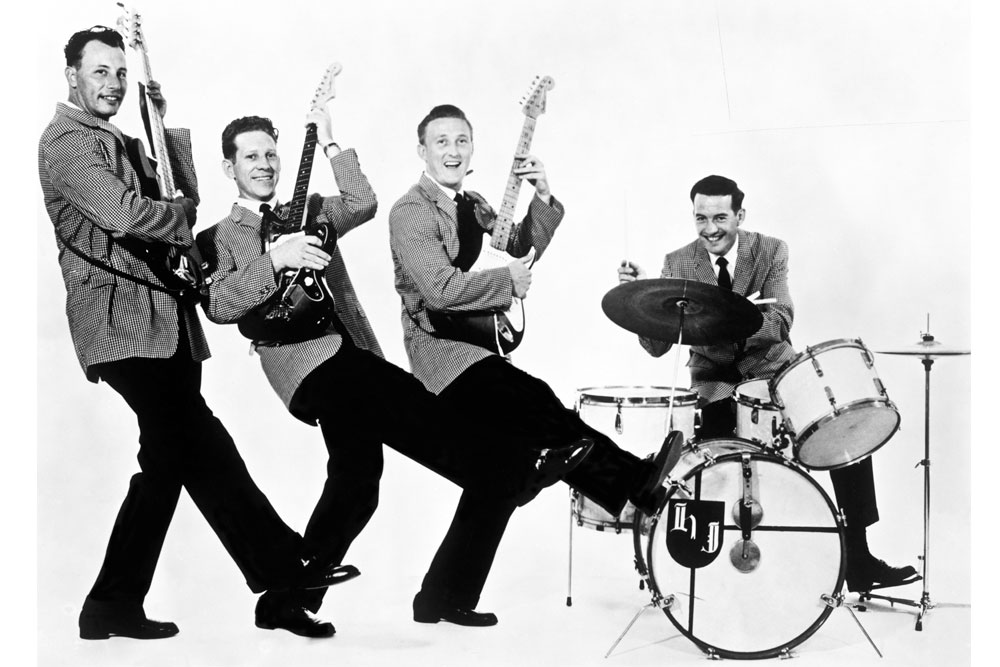 CS: One of the more fascinating aspects of the documentary is when it focuses on the band’s unique use of sound, which, unless you’re a “music nerd” (as is often stated in the doc), casual listeners may not pick up on — how innovative was the sound of The Ventures? Or, what’s one takeaway you think audiences should know about this prolific band?
CS: One of the more fascinating aspects of the documentary is when it focuses on the band’s unique use of sound, which, unless you’re a “music nerd” (as is often stated in the doc), casual listeners may not pick up on — how innovative was the sound of The Ventures? Or, what’s one takeaway you think audiences should know about this prolific band?
Staci: They came up at the same time as the rise of the electric guitar. So when guitarists who were younger than The Ventures were listening to new music in the early 1960s, it was The Ventures that they looked up to. We don’t have this whole story in the film (but it is on our YouTube Channel), but John Fogerty tells how, as a teen on a long road trip with his family, he sat in the back of the station wagon and played “Walk, Don’t Run,” over and over again until he got it right. So many musicians from entirely different walks of genre – from Jeff Cook of Alabama to Scott Ian of Anthrax – were inspired by The Ventures. That is something very, very few bands can claim.
CS: How difficult was this documentary to make? (Getting stars like Billy Bob Thornton involved, tracking down former members, etc.)
Staci: Honestly, it’s the most difficult thing I have ever done. With a narrative film, you have a script and storyboards, and actors to say exactly what they’re supposed to. You have a finite end-point. A documentary is much more fluid and unwieldy. It took about three years from concept to completion, and we were not backed by any major studios or investors. Myself and my family, plus a few friends and supporters kicked in, but as the person who said “yes” to taking this on, I spent countless hours and went through a lot of frustration dealing with flaky people, broken promises, and stonewalling managers. But I am no quitter. I forged on, because I said I would. And I did. Now that I am seeing some light at the end of the tunnel (the movie is out on December 8, 2020) and we are getting some positive reviews, it feels worthwhile. I am also extremely grateful for the many musicians and music historians who helped us tell a complete, well-rounded story of The Ventures.
CS: How much of The Ventures’ success can be attributed to the band having the freedom to experiment with new and unique sounds — something that doesn’t seem to happen quite as much in the modern day?
Staci: Well, it was something of a wild west for the electric guitar in the late 50s and early 60s. There were no rules. Bands like The Ventures were the trailblazers. Although things may be “easier” now with autotune, songwriting software, and computers that will arrange your music, all that ease and choice actually makes people less creative (in my opinion).

CS: Another cool aspect of the film centers on your grandma, Josie Wilson, who seems to be one of the main factors in The Ventures’ success — how amazing was it to share this story with the world?
Staci: It is so amazing! Aside from the diehard fans of The Ventures and us in the family, not many people know that she was one of the very first female music producers working alongside Bob Reisdorff of Dolton Records and working out of the Capitol Building. Prior to that, she started her own record label, Blue Horizon, in order to get The Ventures’ demos into the hands of radio stations. Decades later, she was awarded an honorary GRAMMY for her contribution and pioneering ways. Add to that the fact that she was a divorcee and a grandmother who didn’t have any prior entrepreneurial experience, then take into account the sexist mores of the time, and you really have to give her kudos for her daring and her belief in The Ventures.
CS: I loved that bit where The Ventures found success in Japan — the whole thing works like a crazy Hollywood story — and the film notes that “music is a universal language,” but what else do you believe contributed to their overseas success?
Staci: Many Asian countries revere American pop culture. There are still people to this day in Japan living a full-on “rockabilly” lifestyle. So performers like Elvis Presley, The Beatles, and The Ventures are their heroes. But what sets The Ventures apart and makes them even more accessible is the fact they’re an instrumental group—there are no lyrics, just the music.
CS: Speaking of Hollywood movies, have you and your father considered adapting their story for the big screen? Especially in light of recent films like Rocket Man and Bohemian Rhapsody?
 Staci: My brother Tim actually had a “lightbulb moment” when he saw The Jersey Boys onstage musical, and he thought The Ventures story would be great as a live recreation. That would be pretty cool. As far as a scripted movie, I am not sure how that would work; The Ventures don’t have the built-in drama or big personalities of the Elton Johns and Freddie Mercuries of the world. They were regular, everyday family men who played music and didn’t have any huge public flame-outs, stints in rehab, or anything like that.
Staci: My brother Tim actually had a “lightbulb moment” when he saw The Jersey Boys onstage musical, and he thought The Ventures story would be great as a live recreation. That would be pretty cool. As far as a scripted movie, I am not sure how that would work; The Ventures don’t have the built-in drama or big personalities of the Elton Johns and Freddie Mercuries of the world. They were regular, everyday family men who played music and didn’t have any huge public flame-outs, stints in rehab, or anything like that.
CS: Are there other tidbits that didn’t make it into the documentary that you can share?
Staci: Yes, there are. And we share them on our YouTube channel. http://www.youtube.com/c/TheVenturesMovie
CS: What was your overall goal with The Ventures: Stars on Guitars? (In other words, what do you want audiences to take away from it?)
Staci: Really, I just want people to be entertained. And they learn something or download a few songs by The Ventures, then I am happy. I hope that everyone will tune in to watch the movie when it’s out (12/08/20). It’s really the perfect kind of movie to watch this holiday season, because it’s a nice, stress-free story about the power of music and it shows what can be done when you really believe in yourself and don’t give up.
www.TheVenturesStarsOnGuitars.com
INTERVIEW WITH CHAD REHMANN
Composer of Dashing in December

Chad Rehmann is a busy guy these days with three holiday films featuring his score getting a release this season, namely Dashing in December, Lifetime’s Christmas on the Menu and A Very Charming Christmas Town. To date, he has composed 56 films, including such fare as Psycho Wedding Planner and lighter pics like A Christmas in Vermont.
To promote Dashing in December, Rehmann spoke with ComingSoon.net and shared his thoughts on his score and spoke at length about his career and numerous collaborations with director Jake Helgren.
ComingSoon.net: How did you get involved with Dashing in December?
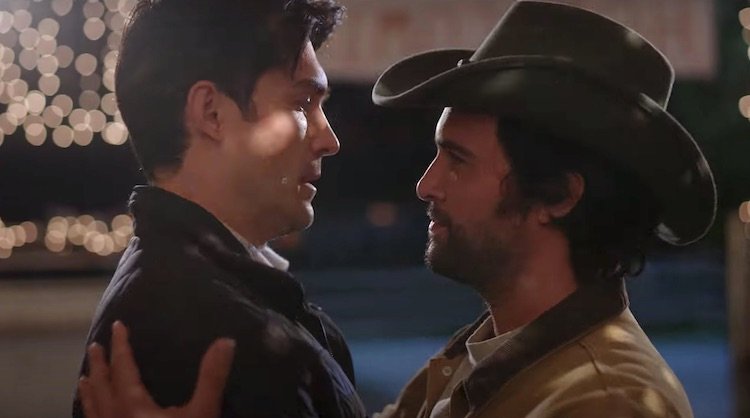 Chad Rehmann: In 2016, I collaborated with Jake Helgren on a film called, 10 Year Reunion. He and I clicked pretty quickly and began a relationship that’s now spanned 18 films. His producing partner, Autumn Federici, and he started a production company (The Ninth House), and I have been fortunate to score most of the titles under that banner. When Dashing in December came about, Jake and Autumn asked if I would score the film and it was an immediate “Yes!” Not only did it afford me the opportunity to write music for a beautiful love story with a diverse cast of characters, but it was also being executive produced by Off Camera Entertainment (a company with whom I’ve also worked) and allowed me to write for Paramount Networks. It was a no-brainer for me, as everyone involved was passionate about this story and the people at the helm are those for whom I have the upmost respect.
Chad Rehmann: In 2016, I collaborated with Jake Helgren on a film called, 10 Year Reunion. He and I clicked pretty quickly and began a relationship that’s now spanned 18 films. His producing partner, Autumn Federici, and he started a production company (The Ninth House), and I have been fortunate to score most of the titles under that banner. When Dashing in December came about, Jake and Autumn asked if I would score the film and it was an immediate “Yes!” Not only did it afford me the opportunity to write music for a beautiful love story with a diverse cast of characters, but it was also being executive produced by Off Camera Entertainment (a company with whom I’ve also worked) and allowed me to write for Paramount Networks. It was a no-brainer for me, as everyone involved was passionate about this story and the people at the helm are those for whom I have the upmost respect.
CS: I love the approach you took with this score, which doesn’t sound like a traditional Christmas score — i.e., familiar Christmas melodies, or Christmas-y sounds — how important was it for you to create something different for this film?
Chad: Thank you so much for the kind words! After seeing an early cut of the film, I knew that sleigh bells, flutes, and other instruments that one would expect to hear in a Christmas film was not the way to go. Jake and I decided early on to score this film more as a Romantic Drama that happens to take place during Christmas as opposed to a “Christmas Film”. To be clear, there are still a lot of Christmas songs present, but that’s accomplished through some fantastic source music that gets used throughout the film. The score for this production has a more intimate character than others I’ve written – only using a string orchestra, acoustic guitar, a tiny bit of piano and the occasional solo violin; however, in some ways having a “simpler sounding score” was more difficult. It’s easy for a composer to hide behind a large orchestra, but purposefully limiting ones resources and using the resources sparingly can bring about its own challenges.
CS: It’s a very somber, emotional, though hopeful score with lovely melodies — what was the overarching mood you wanted to convey with your music?
 Chad: In terms of melodic themes, I did rely heavily on scales and chords that are more indicative of a western/folk musical language. The score needed to feel as if it was an extension of the location itself. It’s rustic, simple, and centered on friendship and love. At the same time, there is a cloud of uncertainty as many of the characters are having these internal battles of what they need from others and what they want from the world. The challenge was to blend those competing moods, while still keeping in mind that this is happening during the holiday season.
Chad: In terms of melodic themes, I did rely heavily on scales and chords that are more indicative of a western/folk musical language. The score needed to feel as if it was an extension of the location itself. It’s rustic, simple, and centered on friendship and love. At the same time, there is a cloud of uncertainty as many of the characters are having these internal battles of what they need from others and what they want from the world. The challenge was to blend those competing moods, while still keeping in mind that this is happening during the holiday season.
CS: What is your process when creating a score? Does it differ from film to film?
Chad: Once I receive a film, I usually watch it a couple of times and then take the day off. Over the years, I have found that so much of my creative process takes place when I’m away from my computer that I purposefully lean into that and initially step away from the film in order to collect my thoughts and begin brainstorming about how I want to approach the film. Early on in my career I would watch the film and immediately start writing. Inevitably this resulted in many first and second drafts being thrown out by me before even sending them to the director, as I don’t think I had enough time to fully ingest the material and let it marinate a bit in my mind. A majority of the melodies and themes that end up on the show come from me humming in the shower, a thought that I had while taking a walk, or an idea that pops in my head as I play with my kids. The worst is when the idea comes right before I fall asleep, because that means I have to get out of bed and get it on paper before I forget!
For me, there isn’t really a difference in how I score this type of genre. My inspiration for most films almost always comes from either the location of the film or the characters. I also am a little more old school as compared to other composers, as I always start with pencil and paper. Most of my themes, colors, and general tone of the film is down on paper before going to the computer to work on the mock-ups. It takes a little longer in the beginning, but I find myself able to work faster if I’ve already struggled through some of the creative choices before matching it to picture. My process and work in horror and thriller films, however, can be drastically different if I decide that new sounds need to be created for the film and/or non-orchestral texture/instruments need to be utilized. For more traditional scores, however, the approach is pretty much the same.
CS: You have 56 composing credits under your name on IMDB — including a number of Christmas themed films. How do you continually come up with new ideas for your scores, specifically the Holiday-centric ones?
Chad: For me, I try to focus on what makes the film stand apart from the others and accentuate that. Locations are a good place to start. Is it in the country? City? Coffee shop? Antique store? All of these locations can suggest a different approach to the store. Another way to differentiate the score is by focusing on the backgrounds of the characters. Are any of them from the city? Small, rural town? Ranch? Far off location? This helps in examining what musical language to use. If a character is from a small town, maybe they deserve a melody that is simpler and more folksy. If a character works in business or technology, maybe there is a digital component to the orchestration. If a character is free spirited she/he may have a melody that enhances that aspect of her/his personality. There is always something unique about every project that I feel I can latch onto and use as I develop the film’s musical world.
CS: Your body of work also consists of horror films such as Psycho Sister-In-Law and Psycho Party Planner — which is miles away from Dashing in December. Do you prefer one type of film over the other in terms of the creativity it affords?
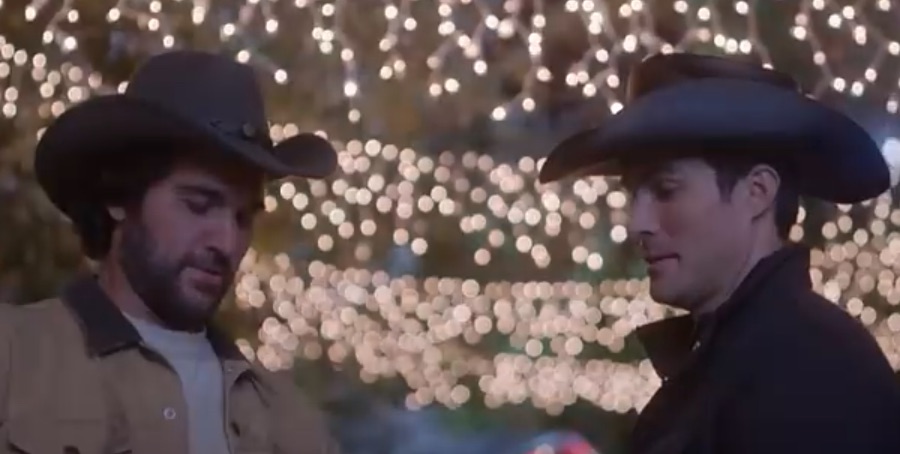 Chad: Because I was trained as a contemporary composer for the concert hall, I was always taught to push boundaries and experiment. Horror and thriller films allow me to do that. While there are instances where a composer can explore and experiment in other genres, darker films have always allowed me the most opportunities to try new things.
Chad: Because I was trained as a contemporary composer for the concert hall, I was always taught to push boundaries and experiment. Horror and thriller films allow me to do that. While there are instances where a composer can explore and experiment in other genres, darker films have always allowed me the most opportunities to try new things.
That being said, my wife is not a fan of horror films at all, and I have three small children – so, it’s interesting that I’ve found success in horror and thriller since it’s a genre that no one in my family will watch! I have been fortunate, however, to be afforded the opportunity to score different types of films throughout my career. Even though the genres can be on opposite sides of the musical spectrum, to me it’s all still just storytelling. There are only 12 notes, and no matter the genre it’s my job to put those notes together in a way that helps directors tell their story.
CS: As you stated, you’ve worked with Jake Helgren on a number of occasions. What is your relationship like and how has it evolved over the different projects you’ve worked on together?
Chad: Over the years, Jake and I have developed quite the shorthand in terms of the scoring process! I’ve come to know what he expects, and he is a great communicator, which is essential in any director/composer relationship. I feel blessed to be a part of his and Autumn’s team. One aspect of our relationship that has grown over the years, I believe, is the creative trust that we have in each other. Jake allows me a good bit of room to experiment and bounce ideas off him, and the trust and respect that goes with that is something that composers hope to find in a director. On the flip side, I’ve come to trust that when I receive notes from Jake that they are not only thoughtful, but a part of a whole that I may not be seeing at the time.
CS: Has your work style changed or become more difficult over the last year in the wake of the pandemic?
Chad: I felt very fortunate that two of the projects that I was working on had already entered post-production, which meant that I had a good amount of work during the beginning of the pandemic. Filming in Los Angeles opened back up during the summer, and I think many production companies quickly began to produce content not knowing how long they would have that ability – so, that work trickled in soon after. The one difference that most of us composers are facing is the new remote recording landscape. I think I can speak for a lot of composers when I say that the part of the job that we love the most is interacting with musicians as they record our scores. This now has become a process that needs to happen remotely, which has its advantages and disadvantages.
CS: What drew you to this particular job — scoring movie and TV music? And what advice you would tell an aspiring composer in search of a similar career?
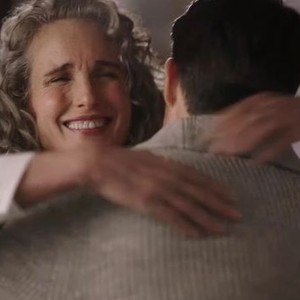 Chad: My very first memory of the impact that music in a film had on me was watching Field of Dreams with my grandfather. Hearing James Horner’s score for that film is the first time that I remember thinking that there are people out there that write music for film. In high school I had an orchestra teacher who was also a composer, and he encouraged me to explore writing, even having the high school orchestra play a piece that I wrote while still in school. That was a pivotal moment for me. Being from a small, rural farming community, though, I had never actually met anyone who made a living writing music. I took a leap of faith, however, and left for Los Angeles three months after graduating college.
Chad: My very first memory of the impact that music in a film had on me was watching Field of Dreams with my grandfather. Hearing James Horner’s score for that film is the first time that I remember thinking that there are people out there that write music for film. In high school I had an orchestra teacher who was also a composer, and he encouraged me to explore writing, even having the high school orchestra play a piece that I wrote while still in school. That was a pivotal moment for me. Being from a small, rural farming community, though, I had never actually met anyone who made a living writing music. I took a leap of faith, however, and left for Los Angeles three months after graduating college.
For those looking to getting into scoring for film – start small and expect it to take a long time. I have found that there tends to be three options available when looking to get into the film music world. The first is to intern or assist a composer that is working at a level above where you are. This can be an invaluable experience, as you will learn the ins and outs of the business in real time as part of a composing team. The second is to enroll in a graduate or certificate program at a college known for its film scoring program. From what I’ve heard, some of the colleges offer great networking opportunities that composers can take advantage of while pursuing their degree. Lastly, and this is the path that I followed, you can just jump right into the pool and see if you can swim. When I arrived in Los Angeles I bussed tables and worked a lot of odd jobs while writing music at night. I composed music for many student films and short independent projects, which was an education in itself. Looking back, I’m not sure it was the wisest decision that I ever made, but it seemed to work out! If this is a career that you are drawn to, find your voice and cultivate it. Identify your weaknesses and work on them. Watch what is happening to the industry and make yourself immune to the changes ahead. Find clues as to where the industry is heading and anticipate how you can fit into that picture. And, most importantly, surround yourself with good people that support you. They will be your rock when things don’t go your way, and they will be there to celebrate with you when the time comes for celebration!
